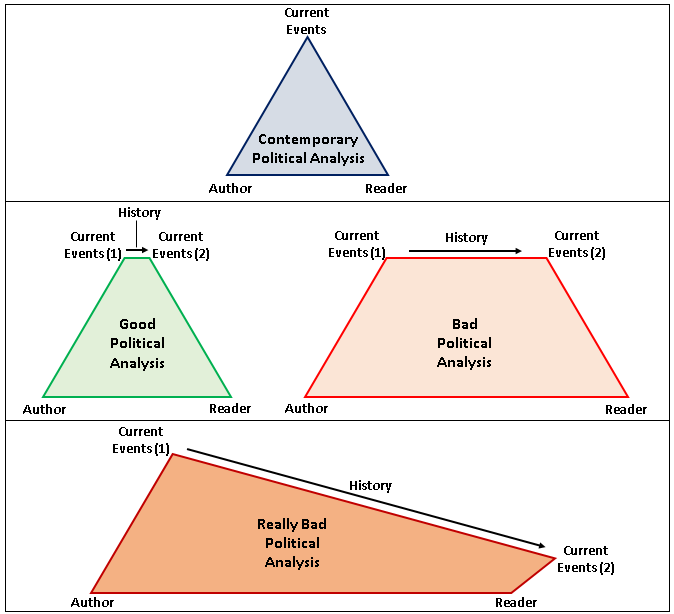Remembering Sam Francis: Samuel Francis’ Essential Writings on Race
Posted By Spencer J. Quinn On In North American New Right | Comments DisabledSamuel Francis, ed. Jared Taylor
Essential Writings on Race
Oakton, Virginia: New Century Foundation, 2007
Samuel Francis’s Essential Writings on Race is what I would call a near-perfect equilateral triangle of political analysis. This is the highest possible praise for such a work. Allow me to explain.
Reading contemporary political analysis can be seen as the geometric joining of three, what I would call, Points of Interest: the author’s, the reader’s, and the current events being discussed. For discussion’s sake, we can envision this as an equilateral triangle. Note how history is presumably not a Point of Interest in this scenario. Given that all three points are contemporary phenomena, history should impact them all more or less equally. However, when reading political analysis of the past, that equilateral triangle becomes more of a trapezoid, with one point — the current events point — being expanded into a line by history. This line also extends the line between reader and author. The longer these lines, the less insightful, relevant, and powerful the political analysis. Therefore, all political analysis should aspire to be that equilateral triangle.
Here we have it for you visual learners (since I know how much you Counter-Currents readers hate to read):
This is basically why we all still read Aristotle and Edmund Burke. And this is also why every single one of us should still be reading Samuel Francis, in particular, his Essential Writings on Race essay collection. You cannot find anything closer to an equilateral triangle than this, despite the decades since these essays were written.
Editor Jared Taylor provides a brief introduction and explains how and why Francis was fired from the Washington Times in 1995. First came his June 1995 article, entitled “All Those Things to Apologize For” (included in this collection), which merely got him demoted. In it, Francis did what a good writer should do — write honestly and disinterestedly about his topic, which in this case was how Christians shouldn’t virtue signal their opposition to slavery on religious grounds since the Bible indeed does not condemn slavery. Irate readers interpreted this as an exoneration of slavery, which it obviously was not. Sadly, the Times editors sided with the irate readers. Several months later came Dinesh D’Souza’s notorious Washington Post op-ed which discussed Francis’ appearance at the inaugural American Renaissance conference in 1994. This most likely got Francis fired. Here’s Francis’ money quote:
The civilization that we as whites created in Europe and America could not have developed apart from the genetic endowments of the creating people, nor is there any reason to believe that the civilization can be successfully transmitted to a different people.
Clearly, Sam Francis was being punished for the crime of white identity. This was bad for Francis, but, in a sense, good for dissidents (at least during the time Francis had left), since it enabled Francis to write freely about race from then on. Taylor includes some of his best essays in Essential Writings.
“Why Race Matters,” the first essay in the collection, should be required reading and re-reading for anyone dissident circles. Should the white race ever fall, the survivors could read this essay and understand why. By channeling Spengler and Burnham, it presents an extremely clear view of politics through a racial lens and it summarily dismisses the counter-factual egalitarianism and universalism of liberal thought. It demonstrates how whites have become so ensconced in this liberalism that they refuse to act in their own racial interests. As a result, they cede their culture to non-whites, who do indeed act in theirs — most often to the detriment of whites. This, as Francis sees it, is nothing more than a “concerted strategy to acquire power.” Not only this, but he characterizes the liberalism espoused by non-whites as weapons to be used against white people. To fight back, Francis insists that whites must reassert their racial solidarity and identity — and there is no reason not to, since their very civilization hangs in the balance. Great stuff from 1994, and something we have hardly improved upon (and often repeated [3]) in the past twenty-five years. Equilateral triangle indeed.
One recurring theme of the collection points to the innate Bolshevism of Christianity — an observation of Spengler’s, but an idea that must have captured Francis’ imagination. This plays into “All Those Things to Apologize For,” but comes to the fore in “The Christian Question.” Written in 2001 for the Occidental Quarterly, this is a review of James C. Russell’s The Germanization of Early Medieval Christianity which posits a theory explaining why Christianity served white (or European) interests so well in the past, but not so much today. Answer: Christianity became European.
But when Christian missionaries tried to appeal to the Germanic invaders by invoking the universalism, pacifism, and egalitarianism that had attracted the alienated inhabitants of the empire, they failed. This was because the Germans practiced a folk religion that reflected ethnic homogeneity, social hierarchy, military glory and heroism . . . .
Given the contradictions between the Christian ethics and world-view and those of the Indo-European culture of the Germanic peoples, the only tactic Christians could use was one of appearing to adopt Germanic values and claiming that Christian values were really compatible with them.
 [4]
[4]You can buy Spencer J. Quinn’s novel Charity’s Blade here. [5]
This, Francis tells us, led to the suppression of the egalitarianism and universalism of the early Christians and, indeed, to the “Germanization” of Christianity. This in turn led to the well-known and formidable “blood and soil” Christianity that promoted social hierarchy, duty and loyalty to tribe and nation, and military heroism and sacrifice. This embodies what we all know as conservative values and reigned supreme in the West for centuries. It was only after the Protestant Reformation (and especially after Vatican II) when these non-European, early-Christian (or, Bolshevik) elements began to insinuate their way back into Christianity. Both Francis and Russell agree that this is poison for Europeans:
The institutionalized Christianity that flourishes today is no longer the same religion as that practiced by Charlemagne and his successors, and it can no longer support the civilization they formed. Indeed, organized Christianity today is the enemy of the West and the race that created it.
An extreme statement, and one that I certainly would have doubted twenty years ago. But with the ongoing capitulation of Christianity to the Bolshevism found in its pre-European roots, history once again has proven Samuel Francis correct.
Another prescient essay that keeps the equilateral points as sharp as possible is “The War on White Heritage.” This one focuses on how Southern and Confederate cultural symbols were being attacked, defiled, and destroyed by the rabid Left twenty years ago. Francis recognized, however, that it was more than just the Confederacy in its crosshairs.
Black rejection of not only the Confederate but the American heritage is clear in the removal of the name of George Washington from a public school in New Orleans. On Oct. 27, 1997, the Orleans Parish School Board, with a 5-2 black majority, voted to change the name of George Washington Elementary to Dr. Charles Richard Drew Elementary (Drew was a black surgeon who made advances in preserving blood plasma); the school itself is 91 percent black. “Why should African-Americans want their kids to pay respect or pay homage to someone who enslaved their ancestors?” asked New Orleans “civil rights” leader Carl Galmon. “To African-Americans, George Washington has about as much meaning as David Duke.”
Twelve years after Francis died in 2005, Leftist terrorists attacked a gathering of the Right in Charlottesville, Virginia for protesting the removal of a statue of Robert E. Lee. President Trump later asked if George Washington was next. Thanks to Sam Francis, we know that he already was.
More than just defending historic American culture, Francis also asserts that white racial awareness had always been central to the American character. In “Race and the American Identity,” he smashes the idea of the proposition nation, as promoted by the bland George Will in a pathetic response to Pat Buchanan’s presidential run in the early 1990s. He presents as evidence the 1790 Naturalization Act as well as John Jay’s famous mention of sharing ancestors with the British in the Federalist Papers, No. 2. He thoroughly questions the exact meaning of Thomas Jefferson’s “all men are created equal” line, and ultimately proves it doesn’t have any meaning at all (“If they are born or created equal, do they remain equal?”). Further, he mentions how Jefferson himself was a race realist and, while opposing slavery, “was adamantly in favor of forbidding free blacks to continue to live within the United States.”
And speaking of Trump, Francis’ analysis of the 2000 election (which he calls “ethnopolitics”), brings to light the Sailer Strategy and presages Trump’s election victory in 2016. Twenty years ago, Samuel Francis was telling white GOP politicians to abandon the non-white vote and focus on their white base — and had the numbers to back it up. With Trumpism having gained some traction in the post-Trump era, it remains to be seen who on the mainstream Right can catch up to Sam Francis’s twenty-year lead.
That line between Current Events (1) and Current Events (2) in our trapezoid gets stretched a little bit, however, in “Prospects for Racial and Cultural Survival.” In this 1995 article for American Renaissance, Francis attempts to map out a practical guide for resisting the Progress of the Left. He starts by describing and then rejecting Richard McCulloch’s and Rabbi Mayer Schiller’s proposal for white separation from non-whites — a breakup of the United States, in effect. Of course, he appreciates the arguments of both men and finds much to agree with, but for him, it boils down to several deal-breakers.
For one, whites have too much ingrained patriotism to the United States to ever willingly cede territory to anyone. Whites are also too dynamic and expansionistic to want to remain penned up in a white ethnostate. He then argues (dubiously, in my opinion) that white separation is a surrender to liberalism because, when compared to white supremacy, it “sounds nicer, less threatening, less dominative, and may be more palatable to liberal orthodoxy.” He also points out that, as of 1995, there was still time for whites to correct the course of history through ending immigration, rejecting multiracialism, imposing fertility controls on non-whites, and encouraging white fertility. This is Francis’ preferred solution — reconquest.
His most interesting objection is that race isn’t enough. It’s a “thin reed,” as he calls it. Whites did not meet their current fate because of racial impurity, but because of conceptual surrender. Wouldn’t it then follow that a white ethnostate would do little to solve the real problem?
To name only the obvious, would John Kenneth Galbraith, Bill Clinton, Earl Warren (were he still alive), George Bush, Bill Buckley, et cetera, be admitted into the white separatist enclave? All of them are undoubtedly white, but you did admit people like these, you would soon have all the problems that made you want to separate in the first place.
Clever arguments, all. And not without validity. However, if Sam Francis had lived long enough to see how desperate things have become in the West with mass immigration, anti-white terrorism in the form of Black Lives Matter and Antifa, nationwide riots, corporate media censorship, mass-deplatformings, Soviet-style cancel culture, and the very fact that powerful Leftists were able to steal the 2020 presidential election with the full complicity of the mainstream media, social media giants, both major political parties, and the Supreme Court, I think he would have promoted white separation as a better alternative to that. And no, pining for a white ethnostate is not a concession to liberalism, it’s a concession to reality. White supremacy was tried and it failed. Multi-racialism was tried and is failing. Other than colonizing Mars, whites really don’t have any options besides separation these days.
But Francis does correctly point out that whenever whites do get motivated enough to act in their shared interests, race cannot be the only issue on the docket. Race is like a skeleton upon which all sorts of cultural forms must grow. These cultural forms must bind us as well. Yes, you need a skeleton, but a skeleton by itself is still only a skeleton.
This is perhaps where his best essay comes in. In “Roots of the White Man” from 1996, he goes beyond everything else in his superb Essential Writings to describe why white civilization is great and needs protecting. He demonstrates how the impulse that drives whites to greatness is also what’s driving whites to perdition today. And what makes whites so great? Among all the peoples of the world, whites (or, Aryans, as Francis calls them) were the ones most likely to invest in a Cosmic Order that surpasses the will of Man. This includes objective Truth, which often eludes us, as well as concepts such as fate and destiny which impact men and women in ways they cannot control. This explains why the Hellenic and Germanic gods were so weak in comparison to non-Aryan deities, and also why science survived only in the West, among whites.
Whites were also the first to apply this objectivity to morality and to place a premium on high ideals over life itself. Honor is a great example of this. To illustrate this point, Francis compares Achilles, who prefers his fate of an early but heroic death to a long dull life, to Gilgamesh, who “seeks only to avoid death and resorts to all sorts of magic and sorcery to prevent it.”
Most importantly, Francis also discusses “Aryan dynamism” and the restless, Faustian nature of white men. Here’s the rundown, something no one reading this should ever forget:
Alexander the Great’s solution of the Gordian Knot by simply slashing it to pieces with his sword is no less a racial trait of Aryans than the scientific achievements of Plato and Aristotle, Galileo and Newton, and hundreds of other scientists who were heirs of the ancient Aryans and who slashed through obscurantism and mythologies with their minds. Their descendants have cured diseases, shrunk distances, raised cities out of jungles and deserts, constructed technologies that replace and transcend human strength, restored lost languages, recovered forgotten histories, stared into the hearts of distant galaxies, and reached into the recesses of the atom. No other people has ever dreamed of these achievements, and insofar as other peoples even know such things are possible, it is because they have learned about them from European Man.
Passages such as this are evergreen and will keep Sam Francis relevant for a very long time to come. He recognized which current events of his day would play important roles in the unfolding of history, and he drew the correct conclusions from them. That trapezoidal line between reader and author will always be short and direct with Sam Francis. Most importantly, he knew how to motivate people to address the problems facing whites today. He makes one proud to be white.
* * *
Counter-Currents has extended special privileges to those who donate $120 or more per year.
- First, donor comments will appear immediately instead of waiting in a moderation queue. (People who abuse this privilege will lose it.)
- Second, donors will have immediate access to all Counter-Currents posts. Non-donors will find that one post a day, five posts a week will be behind a “paywall” and will be available to the general public after 30 days.
To get full access to all content behind the paywall, sign up here:

